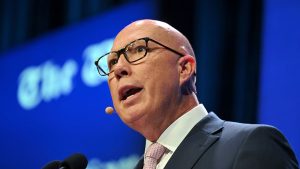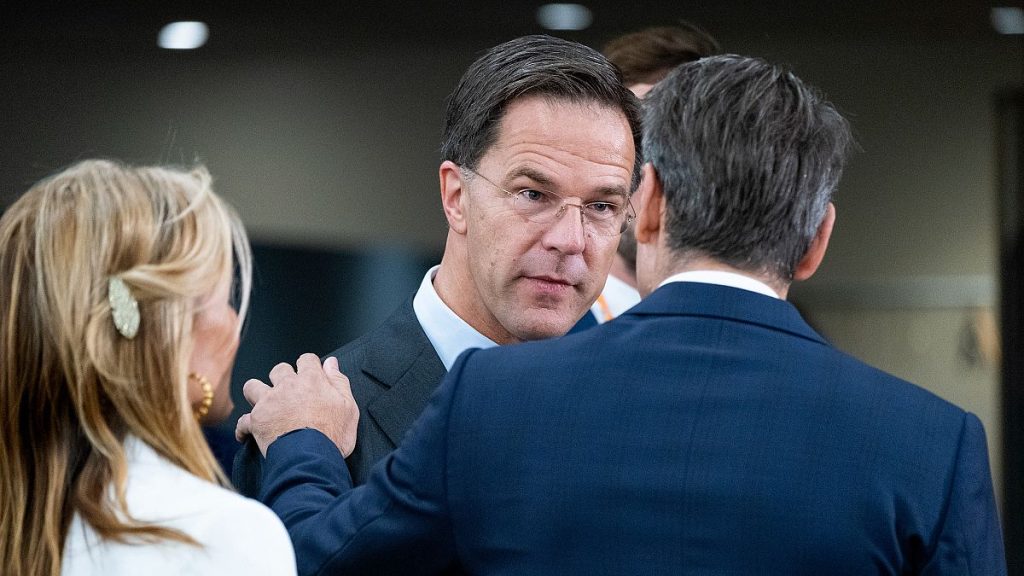Summarize this content to 2000 words in 6 paragraphs in Arabic
Euronews examines contenders and challenges for the top military post – with Mark Rutte’s coronation still not guaranteed.
ADVERTISEMENTForeign ministers from NATO countries are gathering in Prague, Czechia, today and tomorrow (30-31 May). Over them looms the major decision of who should lead the transatlantic alliance in the coming years. Norway’s Jens Stoltenberg, who took office in 2014, has already seen his term extended four times, and is due to step down on 1 October. Allies have nearly converged on a choice, but there are still obstacles in the way. Their decision comes at a key time for the transatlantic military alliance, as it faces up to the threat of an increasingly belligerent Russia and a second Trump presidency. How does NATO select its Secretary General?The Secretary General is NATO’s top civil servant, selected by consensus of the military pact’s members. He – and historically it always has been a man – chairs NATO’s major committees, acts as spokesperson and recruits international staff. In practice selection for the role takes place via informal diplomatic channels – but finding a candidate amenable to all 32 allies isn’t easy. By longstanding tradition that’s now more or less formalised, the job is held by a European senior political figure, and the usual term length is four years. Who are the candidates?One candidate is leading the field by far – Mark Rutte, who’s been Prime Minister of the Netherlands since 2010. His candidacy has so far gained support from 29 of the defence alliance’s 32 members, including the most influential, the US. Rutte will likely halt his day job pretty soon. After months of post-election talks among four coalition partners, former spy chief Dirk Schoof seems set to be named as the next Dutch Prime Minister – meaning Rutte could step down within weeks. As leader of the liberal VVD party, Rutte has successfully managed a series of tricky coalitions in the highly fractured world of Dutch politics – though VVD’s latest decision to ally with Geert Wilder’s far-right PVV is stoking controversy. But he’s not the only candidate out there. Romanian President Klaus Iohannis still has his name in the ring after putting himself forward in March – though he has far fewer backers than Rutte.Other potential nominees, including Estonian Prime Minister Kaja Kallas and the UK’s then-Defence Minister Ben Wallace, have now counted themselves out of the race, and both now support Rutte.Goldilocks and the bearRutte’s appointment would follow something of a trend for NATO leaders, of whom the previous three were from Norway, Denmark and the Netherlands, whose foreign minister Jaap de Hoop Scheffer took up the post in 2004.While that may lead to protests from elsewhere in Europe, Rutte’s northern European pedigree may count in his favour.Some have worried that naming a NATO head who’s too anti-Russian could further escalate tensions – a factor that may have counted against the likes of Kallas.ADVERTISEMENTRutte is pro-Ukraine. A decade ago, he favoured the EU signing an Association Agreement with its eastern ally, though the PVV successfully campaigned against it in a 2016 referendum that saw 61% of Dutch voters reject ratification.But, neither too dovish nor hawkish, Rutte seems the Goldilocks candidate – in line with NATO consensus, but without risking provocation of the Russian bear.What are the remaining hurdles?While Rutte appears the favourite, there are also three significant holdouts still to be convinced – including Iohannis himself.Among them is Hungary, whose far-right leader Viktor Orbán has repeatedly vetoed EU aid for Ukraine and sanctions on Russia, and which views the West as stoking war.Just a few days ago, Hungarian foreign minister Péter Szijjártó confirmed he wouldn’t support Rutte, favouring the eastern candidate.ADVERTISEMENTIt’s also not clear how or when the third sceptic, Robert Fico, might get behind Rutte. The Slovakian Prime Minister suffered life-threatening injuries in a politically motivated attack in mid-May, and is currently recuperating in hospital. What happens now?The Prague gathering may prove too politically junior to resolve the impasse. Hopes are more focused on a NATO Summit due to take place in Washington, DC in July, following a defence ministers’ meeting in mid-June. Pushing a decision until after 9 June European elections makes it likely to get caught up in a wider series of EU top jobs decisions on the leadership of other Brussels institutions. Iohannis himself is sometimes tipped to lead the European Commission – though that job seems like more likely to go to the incumbent, Germany’s Ursula von der Leyen. Equally, Kallas may be Estonia’s pick for EU commissioner, or even end up heading the bloc’s diplomatic service. ADVERTISEMENTAs such, side-deals struck in EU summits due on 17 and 27 June may help unblock NATO’s quandary. All eyes will be on US elections due in November, with some fearing the result might undermine the transatlantic alliance entirely. Republican candidate Donald Trump has urged allies to reach agreed targets for military spending, and even called on Russia to attack those who don’t.
rewrite this title in Arabic Who will be next NATO secretary general?
مقالات ذات صلة
مال واعمال
مواضيع رائجة
النشرة البريدية
اشترك للحصول على اخر الأخبار لحظة بلحظة الى بريدك الإلكتروني.
© 2025 جلوب تايم لاين. جميع الحقوق محفوظة.




